
Albert of Prussia was a German nobleman who was the 37th Grand Master of the Teutonic Knights, who after converting to Lutheranism, became the first ruler of the Duchy of Prussia, the secularized state that emerged from the former Monastic State of the Teutonic Knights. Albert was the first European ruler to establish Lutheranism, and thus Protestantism, as the official state religion of his lands. He proved instrumental in the political spread of Protestantism in its early stage, ruling the Prussian lands for nearly six decades (1510–1568).

Warmia is a historical region in northern and northeastern Poland. Its historic seat and capital was Lidzbark and the largest city is Olsztyn.
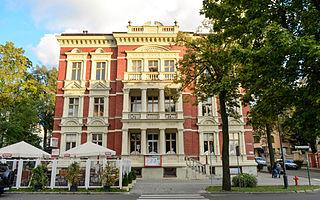
Zielona Góra(listen) is the largest city in Lubusz Voivodeship, located in western Poland, with 141,222 inhabitants (2019). Zielona Góra has been in Lubusz Voivodeship since 1999, prior to which it was the capital of Zielona Góra Voivodeship from 1950 to 1998. It is the seat of the province's elected assembly, while the seat of the centrally appointed governor is located in the city of Gorzów Wielkopolski. Zielona Góra has a favourable geographical position, being located not far from the Polish-German border and on several international road and rail routes connecting Scandinavia with Southern Europe and Warsaw with Berlin. The region is also closely associated with vineyards and holds an annual Wine Fest.
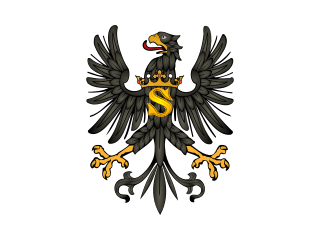
The Duchy of Prussia or Ducal Prussia was a duchy in the region of Prussia established as a result of secularization of the State of the Teutonic Order during the Protestant Reformation in 1525.

Pietism is a movement within Lutheranism that combines its emphasis on biblical doctrine with the Reformed emphasis on individual piety and living a vigorous Christian life.
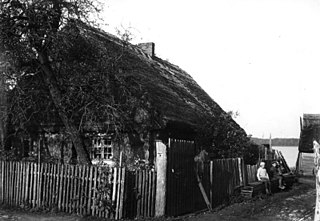
The Masurians or Mazurs are a small Lechitic sub-ethnic group of about 5,000–15,000 people traditionally present in what is now Warmian-Masurian Voivodeship, Poland. In the 2011 Polish census, 1,376 individuals declared themselves to be Masurian either as a first or secondary identification. Before World War II and its post-war expulsions, Masurians used to be a more numerous ethnic group found in the southern parts of East Prussia for centuries following the 16th century Protestant Reformation. Today, most Masurians live in what is now Germany and elsewhere.
The Polish Brethren were members of the Minor Reformed Church of Poland, a Nontrinitarian Protestant church that existed in Poland from 1565 to 1658. By those on the outside, they were called "Arians" or "Socinians", but themselves preferred simply to be called "Brethren" or "Christians," and, after their expulsion from Poland, "Unitarians".

The Grand Duchy of Posen was part of the Kingdom of Prussia, created from territories annexed by Prussia after the Partitions of Poland, and formally established following the Napoleonic Wars in 1815. Per agreements derived at the Congress of Vienna it was to have some autonomy. However, in reality it was subordinated to Prussia and the proclaimed rights for Polish subjects were not fully implemented. The name was unofficially used afterward for denoting the territory, especially by Poles, and today is used by modern historians to refer to different political entities until 1918. Its capital was Posen. The Grand Duchy was formally replaced by the Province of Posen in the Prussian constitution of December 5, 1848.
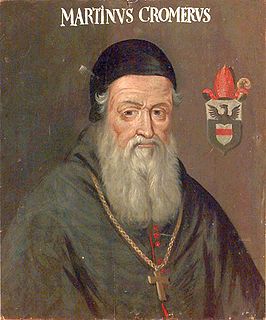
Marcin Kromer was Prince-Bishop of Warmia (Ermland), a Polish cartographer, diplomat and historian in the Kingdom of Poland and later in the Polish-Lithuanian Commonwealth. He was a personal secretary to two Kings of Poland, Sigismund I the Old and Sigismund II Augustus.

The Prussian Union of Churches was a major Protestant church body which emerged in 1817 from a series of decrees by Frederick William III of Prussia that united both Lutheran and Reformed denominations in Prussia. Although not the first of its kind, the Prussian Union was the first to occur in a major German state.

The Electorate of Saxony was a state of the Holy Roman Empire established when Emperor Charles IV raised the Ascanian duchy of Saxe-Wittenberg to the status of an Electorate by the Golden Bull of 1356. Upon the extinction of the House of Ascania, it was feoffed to the Margraves of Meissen from the Wettin dynasty in 1423, who moved the ducal residence up the river Elbe to Dresden. After the Empire's dissolution in 1806, the Wettin Electors raised Saxony to a territorially reduced kingdom.

Stanislovas Svetkus Rapolionis was a Lutheran activist and Protestant reformer from the Grand Duchy of Lithuania. With patronage of Albert, Duke of Prussia, he obtained the doctorate of theology from the Protestant University of Wittenberg where he studied under Martin Luther and Philip Melanchthon. After graduation, he became the first professor of theology at the newly established University of Königsberg, also known as Albertina. As professor he began working on several Protestant publications and translations, including a Bible translation into Polish. It is believed that he also started the first translation of the Bible into Lithuanian. Together with Abraomas Kulvietis, Rapolionis was one of the very first authors to write in the Lithuanian language. While Rapolionis and Kulvietis died early leaving their work unfinished, they laid the foundations for future Lithuanian writers and translators.

The Evangelical Church of the Augsburg Confession in Poland is a Lutheran denomination and the largest Protestant body in Poland with about 61,000 members and 133 parishes.
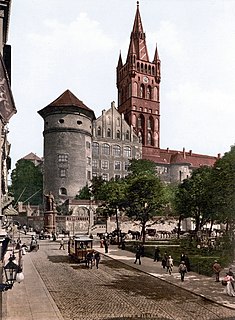
Königsberg is the name for the historic Prussian city that is now Kaliningrad, Russia. Originally a Sambian or Old Prussian settlement, it then belonged to the State of the Teutonic Order, the Duchy of Prussia, the Kingdom of Prussia, the German Empire, the Weimar Republic, and Nazi Germany. After being largely destroyed in World War II by Allied bombing and the Red Army, it was annexed by the Soviet Union and its surviving inhabitants executed or forcibly expelled. Thereafter, the city was renamed Kaliningrad. Few traces of the former Königsberg remain today.
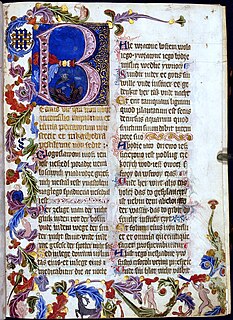
The earliest Bible translations into the Polish language date to the 13th century. The first full ones were completed in the 16th.

Jan Seklucjan was a Polish Lutheran theologian, an activist in the Protestant Reformation in Poland and Ducal Prussia, translator, writer, publisher and printer.

Hans Weinreich was a publisher and printer of German and Polish language books in the first half of the sixteenth century. Weinreich was originally from Danzig (Gdańsk) in Royal Prussia, Kingdom of Poland, and then moved to Königsberg (Królewiec) in Ducal Prussia at the invitation of Albert of Prussia.

Stanisław Murzynowski was a Polish writer, translator and a Lutheran activist during the Protestant Reformation. Murzynowski came from a Polish noble family of the Ogończyk coat of arms.
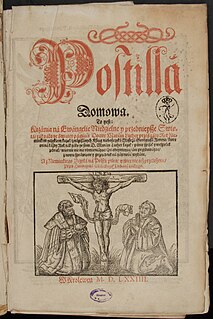
Hieronim Malecki (1527, most likely in Kraków – 1583 or 1584 in Lyck, Ducal Prussia was a Polish, Prussian Lutheran pastor and theologian, as well as a translator, publisher, writer and creator of literary Polish.

The History of Poles in Königsberg goes back to the 14th century. In the struggles between the Kingdom of Poland and the Teutonic Order, the city was briefly part of the Polish state, and after the Second Peace of Toruń, 1466, it was a capital of Duchy of Prussia, a fief of Poland. During the Protestant Reformation Królewiec became the center of Polish Lutheranism and partially for this reason, a birthplace of Polish printing and one of the epicenters of vernacular Polish literature. Polish intellectuals and scholars played a major role in the founding of the University of Königsberg (Albertina) and served as both faculty and administrators.

















